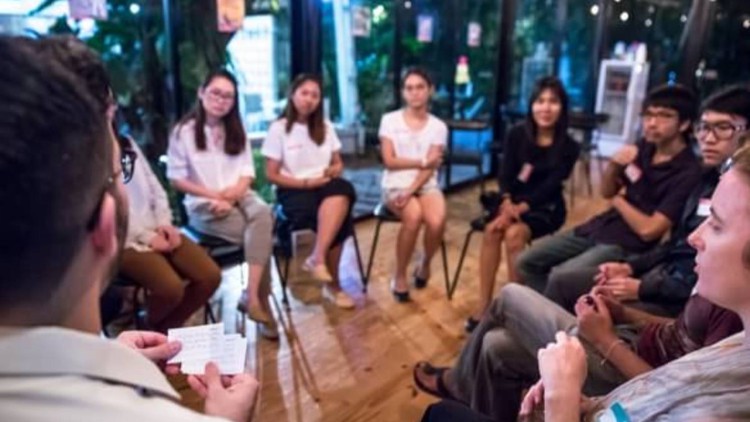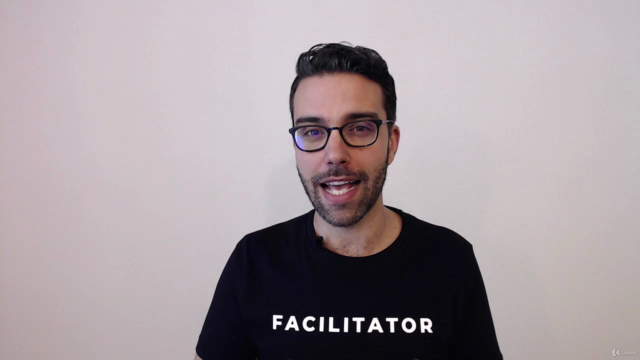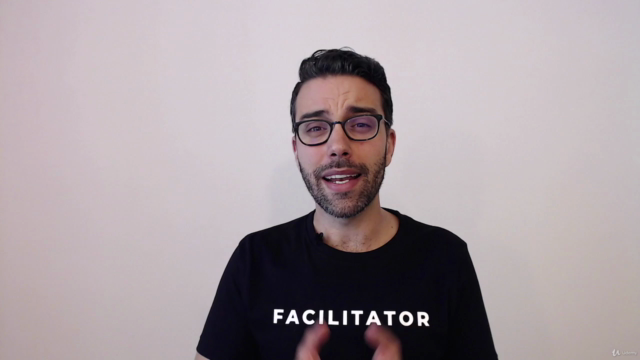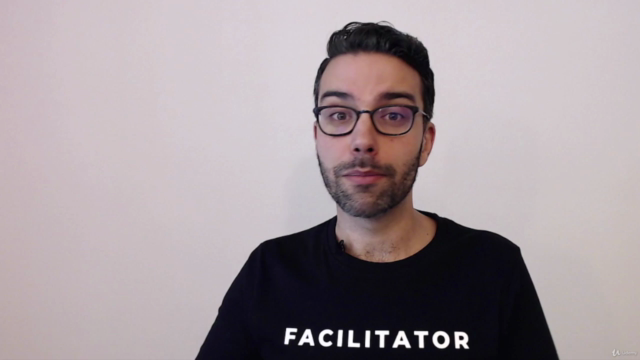Facilitating Small Group Conversations to Promote Belonging
Step by Step Instructions on The Aristotle's Cafe Approach - Proven to Improve Empathy, Listening, and Communication
4.60 (136 reviews)

6 209
students
3 hours
content
Apr 2023
last update
$49.99
regular price
Why take this course?
¡Hola! It seems like you're looking for guidance on various aspects of facilitation, from understanding the difference between a facilitator and an instructor to how to effectively run small group discussions and use body language in communication. Based on your inquiry and the context provided, here are some insights and tips to help you become an effective facilitator:
How to Facilitate a Small Group:
- Preparation: Understand the objectives of the session. Know what you want to achieve and how you can guide the group towards those outcomes.
- Set Clear Expectations: At the beginning, clarify the purpose of the discussion, the roles (including your own), and the ground rules for participation.
- Create a Safe Environment: Ensure that all participants feel comfortable sharing their thoughts and opinions without fear of judgment or criticism.
- Encourage Participation: Use inclusive language and techniques to engage everyone in the group. Be mindful of body language and seating arrangements to encourage open communication.
- Active Listening: Practice active listening to fully understand what is being said and to demonstrate respect for the speaker's contributions.
- Guide the Discussion: Keep the conversation on track, steer it when necessary without dominating, and invite diverse opinions.
- Summarize and Reflect: Regularly summarize key points and reflect on what has been discussed to ensure clarity and understanding among participants.
- Close with Action Items: At the end of the session, summarize the main takeaways, decisions made, or actions to be taken. Make sure everyone is clear on their responsibilities.
Difference Between a Facilitator and an Instructor:
- An instructor typically imparts knowledge by lecturing or providing instructional content. They are often seen as experts in the subject matter.
- A facilitator, on the other hand, helps a group to be effective and productive. They guide the process of the meeting or discussion rather than directly teaching information.
Asking Powerful Questions:
- Open-Ended Questions: Encourage participants to elaborate and share their thoughts more fully.
- Reflective Questions: Help participants to reflect on their own experiences or opinions.
- Probing Questions: Dive deeper into the topic at hand when a participant makes a point, to uncover assumptions or clarify perspectives.
- Focused Questions: Bring the group back on track if the conversation veers off the intended path.
- Provocative Questions: Stimulate critical thinking and encourage participants to consider new perspectives.
Using Body Language and Non-Verbal Communication:
- Open Body Posture: Demonstrate approachability by maintaining an open stance.
- Eye Contact: Engage with participants through eye contact to show attentiveness and interest.
- Facial Expressions: Use expressions to convey your reactions and encouragement.
- Hand Gestures: Employ gestures to emphasize points or to invite participation.
- Proximity: Position yourself so you are neither too close nor too far from participants, fostering a sense of closeness without overstepping boundaries.
- Mirroring: Subtly mirror the body language of participants to build rapport and show understanding.
Running Small Group Discussions Effectively:
- Structured Format: Have a clear agenda or framework for the discussion.
- Rotation of Speakers: Allow different participants to share their thoughts to ensure a variety of opinions are heard.
- Encourage Preparation: Ask participants to come prepared with ideas or answers to certain questions.
- Balance Dominance: Be mindful of individuals who may dominate the conversation and give space to those who might be quieter.
- Facilitate Constructive Conflict: If disagreements arise, guide the participants towards constructive dialogue and mutual understanding.
- Capture Key Moments: Document significant contributions or decision points for future reference.
Remember, facilitation is as much about managing the process as it is about understanding the dynamics of group interaction. It's a skill that can be honed over time with practice, reflection, and a commitment to continuous learning.
Course Gallery




Loading charts...
Related Topics
1143698
udemy ID
13/03/2017
course created date
30/08/2020
course indexed date
Bot
course submited by